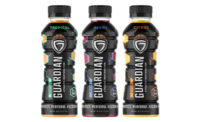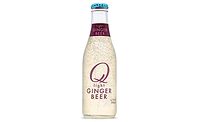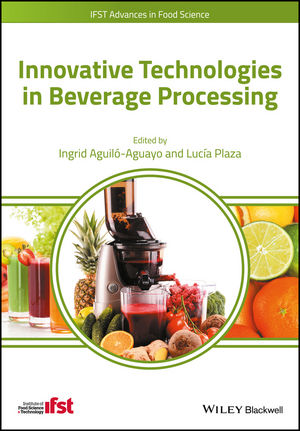Consumers investing in health with sugar reduction trends
Natural, less processed sweeteners driving beverage innovations

Advancements in sweetener technology is helping alternative sweeteners enter new beverage categories like dairy drinks, Cargill’s Andrew Ohmes notes.
(Image by Anna Tis from Pexels/courtesy of Canva)
Clinical psychologist and author Anne Wilson Schaef is known for the quote, “Good health is not something we can buy. However, it can be an extremely valuable savings account.” Today, consumers are filling their “savings accounts” through various functional foods and beverages, while still prioritizing taste.
“Health is the new wealth. With that said, consumers are much more aware of their health and wellness goals after experiencing a pandemic,” says Ana Arakelian, head of public relations and communications at Sweegen, Rancho Santa Margarita, Calif. “They are looking for beverages that are indulgent, but also have an edge for supporting health functions such as energy, stress reduction and beauty. To align more on the healthy side, they are moving away from artificial ingredients and gravitating to products designed with natural, clean and healthy ingredients such as stevia sweeteners.”
Andrew Ohmes, global product line manager for high intensity sweeteners at Cargill, Wayzata, Minn., notes that consumers are less engaged with sugar-sweetened beverages but also looking to avoid artificial sweeteners.
“That’s why zero-calorie sweeteners like stevia continue to make significant gains,” he says. “Dramatic improvements to next-generation stevia products, combined with consumers’ greater familiarity with the ingredient, have opened the door to a new wave of reduced-sugar formulations.

Image courtesy of Sprecher Brewing
“Even amid the pandemic, we continued to see strong growth in 2020,” he continues. “Product launches containing stevia reached more than 7,400 new food and beverages globally ― up 8.7% over the previous year, according to Innova Market Insights data.”
David Nichols, category development and planning manager at Tate & Lyle, Hoffman Estates, Ill., also notes how launches in the U.S. market is reflecting consumers inclination to embrace zero-calorie sweeteners.
“Per Mintel’s GNPD database, there have been more U.S. beverage product launches sweetened with zero-calorie sweeteners than with caloric sweeteners since the start of 2020,” he says. “Beverage-makers are utilizing zero calorie sweeteners to meet consumer health and wellness demands.”
Sarah Diedrich, marketing director of sweetening solutions and fibers at Chicago-based ADM, also highlights how sugar reduction is encouraging beverage-makers to employ alternative sweeteners.
“Consumers are taking a proactive approach to their health and wellness, which includes limiting sugar intake across food and beverage categories. Our research finds that eight out of 10 U.S. consumers are engaged in sugar reduction, and of those, 83% find sugar reduction to be important in beverages,” she says citing ADM Outside Voice research. “Sugar reduction has recently become a mainstay for drinks as people consider health-forward options. In fact, 66% of consumers selected minimizing calories as a health priority sought after in new beverage selections.
“Moreover, sugar content is specifically examined by consumers in beverages since the category has been a large contributor of added sugars in the American diet,” Diedrich continues. “With that, the beverage category is also a key entry point for sugar substitutes and introducing alternative sweeteners.”
Pilar Alvarez-Palazio, sugar optimization brand manager at American Sugar Refining (ASR) Inc., West Palm Beach, Fla., notes that beverage-makers looking to align with these more vanguard trends are turning to plant-based solutions.

Image courtesy of Celsius Holdings Inc.
“Some brands are wanting to move away from artificial, high potency sweeteners toward options which are more plant based,” she says. “We see a lot of interest in our sugar distillates and (soon to be available) tagatose from customers wanting to avoid artificial sweeteners in sugar-free formulations.”
However, education could be necessary for brand owners employing ingredients that aren’t as widely known.
“As one would expect, consumers prefer ingredients they are familiar with, so it normally takes time for a new ingredient to become widely accepted, irrespective of what benefits the sweetener may or may not have,” Alvarez-Palazio adds.
Sweet advancements
With functional formulas amalgamating with sugar reduction trends, ingredient suppliers eagerly are putting their energy into providing beverage-makers with the best sweetener solutions.
“Advancements in technology have spawned new taste modulation solutions that should be in every product developer’s toolkit for creating consumer-winning beverages,” Sweegen’s Arakelian says. “When creating better-for-you products, with functional ingredients or reduced sugar, taste modulators provide exceptional flexibility for re-establishing balance in a food or beverage system. They can help block bitterness, boost the perception of sweetness, manage a lingering note, enhance mouthfeel, or reduce astringency. For example, our bitter blocking technology can mitigate 80-100% of bitterness in caffeinated drinks and confectionery.”
Arakelian adds that although beverage is among the largest categories experiencing the demand of sugar reduction, it remains the most challenging.
“As consumers are demanding functional benefits, and new flavors for an edge of health and wellness, new advancements are necessary,” she says. “For example, Sweegen’s patented natural bitter blocking flavors mitigate bitterness associated with bitterants found in functional ingredients, which become more predominant when reducing sugar in health and wellness products. Our portfolio reduces bitterness of common bitterants such as coffee, unsweetened cocoa, tea, cannabis, tonic water, over-the-counter and prescription medications, highly caffeinated shots, energy drinks and vitamin supplements.”
For Cargill, Ohmes explains that the company it at the beginning of its stevia journey and expects that as advancements with the ingredient persist, stevia will be able to enter more categories to further the sugar reduction and natural sweetener reach.
“Dairy is a great example. Since we made it possible to access Reb M via our EverSweet stevia sweetener, the category has been on fire,” he says. “We’ve seen similar growth in alcoholic beverages like hard seltzers, where brands have turned to EverSweet to improve the flavor profile of their low-sugar offerings.
“One thing is certain: The pressure to embrace sugar reduction shows no sign of easing,” Ohmes continues. “Consumer desire and government regulations will continue to push brands toward formulations with less sugar and fewer calories. It’s a huge challenge for the industry, but we are working hard to provide the tools and expertise necessary to help brands create the next-generation of great-tasting, reduced-sugar products.”
Ohmes adds that the company continues to seek out new solutions that come closer to the profile of sugar.
“Our EverSweet stevia sweetener and ViaTech stevia leaf extract are prime examples of that work, as is our ongoing research to understand how to best leverage other natural sweeteners, such as Zerose” erythritol, to round out sweetness profiles and improve mouthfeel,” he says.
ADM’s Diedrich recognizes the potential for sweetener solutions to support sugar reduction trends, but also highlights the delicate balance that can accompany this process.
“At ADM, we approach each sugar reduction formulation with the same three goals in mind: replace sweetness, rebalance flavor and rebuild functionality. For example, beverages that require more bulking and binding will benefit from our SweetRight Reduced Sugar Glucose Syrup (RSGS),” she says. “Combined with SweetRight Edge stevia, RSGS builds back functionality and delivers on the clean label trend. On top of this, we’re continually expanding our vast portfolio of low and no calorie and specialty nutritive sweetening solutions to provide beverage formulators with optionality and help create reduced-sugar offerings consumers crave.”
ASR’s Alvarez-Palazio prognosticates that rare sugars is another potential mainstream sweetener solution as it can operate as a standalone sweetener or in combination with high-potency sweeteners thanks to its ability to boost mouthfeel and other sensory perceptions.
“Rare sugars, such as allulose and tagatose, are the latest additions to the formulator’s portfolio,” she says. “ASR Group will be introducing these ingredients in 2022. This will be welcomed as demand currently exceeds supply. Our other new ingredients Sugarcane and Cane Molasses Distillates in powder form are also proving to be popular with customers wanting to reduce sugar or artificial sweeteners. These ingredients improve the sensory perception of beverages at ppm levels without adding sugar or calories.”
Tate & Lyle’s Nichols forecasts that sweetener combinations also will be vital the new product development.
“Many new beverage developments are being driven by combinatorial sweetener solutions,” he says. “For example, by combining a high-intensity sweetener like stevia with allulose, beverage-makers can capitalize on the benefits of each sweetener, while addressing each sweetener’s limitations, to achieve a taste profile that is closer to sugar.”
Although beverage-makers have more options for their sweetener solutions, Nichols notes that formulators remain tapped into how consumers view these advancements.
“It is important for beverage-makers to consider consumer perceptions about sweeteners in their new product development plans because not only are consumers increasingly paying attention to the ingredients in the products they buy, but consumers express that the sweetener used in a beverage product directly impacts their purchase interest for the beverage,” he says.
More than meets the eye
As ingredient suppliers develop solutions to support sugar reduction trends, experts note that this is not the only trend influencing the sweetener market.
“Another consumer trend influencing beverage-makers’ sweetener choices is the increasing demand for beverages with functional benefits,” Nichols says. “While added functional benefits help drive trial for beverage products, beverage-makers must also ensure that their beverage products meet consumer taste expectations, and thus choose sweeteners that best optimize taste and cover any offnotes that may come from a functional ingredient.”
Sweegen’s Arakelian notes that the trends driving sweetener innovations vary from market to market.
“Around the world, we are seeing consumer trends that are local to the region. For example, in Europe, the consumers are seeing naturalness and functionality in carbonated soft drinks (CSDs),” she says. “Mintel report supports this observation. ‘In the UK, 52% of consumers believe that refined white sugar is bad for you. By comparison, just 11% of consumers think honey is bad for you, 22% for fruit juice concentrates and 22% for agave.’ And in APAC, there is a growing low sugar and health benefits in CSDs [that] are attractive to consumers, and they are willing to pay more for it.”
Cargill’s Ohmes also highlights the spotlight that has been placed on sustainability and traceability for sweeteners.
“Actions by the U.S. Customs and Border Patrol, which last year issued warnings aimed at stevia grown in certain regions in China, clearly illustrated the value of providing a fully traceable stevia supply,” he says. “Cargill remains confident in our sustainable, ethical sourcing standards. Every lot of stevia we sell can be traced back through our supply chain to the farmers and cooperative who planted the crop. No other major stevia supplier offers this level of field-to-finished product traceability and peace of mind.”
For instance, the company employs its Stevia Sustainability Agricultural Standard program to protect the farmers and the land where its stevia plants grow.
“It includes a detailed agricultural standard, designed to minimize the environmental impact of production practices, as well as ethical requirements that cover worker safety and welfare, and prohibit the use of compulsory, convict or child labor,” Ohmes says. “Every spring, we meet with our growers and review those standards. Every fall, we assure compliance through an independent audit. That attention to sustainable, ethical practices extends to our manufacturing facilities, which are also audited annually by independent third-party organizations.”
The demands on the sweetener market continue to accelerate and so, too, are the number of influencers on the market.
Looking for a reprint of this article?
From high-res PDFs to custom plaques, order your copy today!









